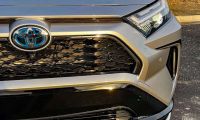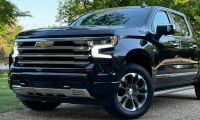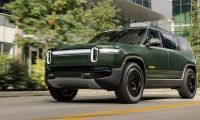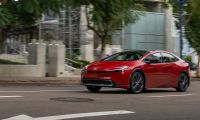When most people think of autonomous driving or self-driving cars, they think of the companies who are often in the news with this technology. Automakers like Tesla, Nissan, or Volvo. The reality is that every major automaker and most original equipment manufacturers are working on autonomous technologies for transportation. Navigant Research has ranked OEMs by both execution of technologies that will lead to self-driving vehicles as well as strategies for introducing more as improvements, legislation, and other outside forces allow.
The leaders have three things in common: all three are involved in luxury vehicles, all three have ties to heavy duty vehicle development, and all have more vehicles on the road with basic autonomous options included than anyone else. The leaders, says Navigant, are Daimler, Audi, BMW, and General Motors. Not far behind them are Ford, Volvo, Toyota, and Honda. For those wondering, Tesla and Nissan are roughly equal and fall just below the middle of the pack. Tesla for lack of well-documented strategy for moving forward with self-driving and Nissan because they have not proliferated early self-driving technologies (such as adaptive cruise control) into their model lineup.
Although no one expects fully automated vehicles to be truly available on the market within the next decade, there are many incremental systems that will be required before self-driving is possible, including foundational tech such as adaptive cruise control capable of slowing to a complete stop and emergency collision-avoidance braking and handling.
The true difference between the leaders in the Navigant paper and the rest is implementation strategy. Ford, for example, is the highest-ranking non-leader ("contender") in the report primarily because they have a solid strategy in place, but little commitment to truly self-driving vehicles, aiming instead for driver assist options. Volvo and General Motors, the nearest in ranking to Ford, both have solid plans for self-driving vehicles - Volvo on several fronts, but lacking the tech to do so (right now).
As for the four leaders? GM has a solid plan that is on par with the plans of BMW and Audi and all three of these companies are quickly developing the technologies to make it work. GM has already rolled out adaptive cruise control and other foundational tech into much of its product line. BMW and Audi are in a similar situation with technology moving forward quickly. Daimler, meanwhile, is in the lead because not only are they working on the technology for automotive, but for many other aspects of transportation as well, including autonomous buses, support vehicles, etc.
Navigant ranked the 18 OEMs on 12 criteria: vision; go-to-market strategy; partnerships; production strategy; technology; geographic reach; sales; marketing; and distribution; product capability; product quality and reliability; product portfolio; pricing; and company commitment. Their research expects that nearly fully autonomous vehicles will be on the road by 2020, capable of driving themselves in simple situations such as commuter traffic and in following simple directions for the bulk of a navigation system's routing.
Source: Navigant Research












Comments
Cool overview. I like that
Permalink
Cool overview. I like that having a plan is part of the analysis. The most autonomous vehicles I have actually driven are Hondas. Both the Pilot and CR-V I tested could drive themselves on the highway with no inputs from me. It would seem tying that into the Nav is a pretty simple next step to make highway driving mostly autonomous.
Thanks. Chrysler can
Permalink
In reply to Cool overview. I like that by John Goreham
Thanks. Chrysler can basically do that as well. The leaders, though, were only partially a surprise to me. I expected Daimler to be up there, but since I follow commercial vehicle trends, I already knew what they've been doing a lot of. I expected Volvo to be higher up the list, though, given their very focused (in PR at least) autonomous work in both trucking and automotive.